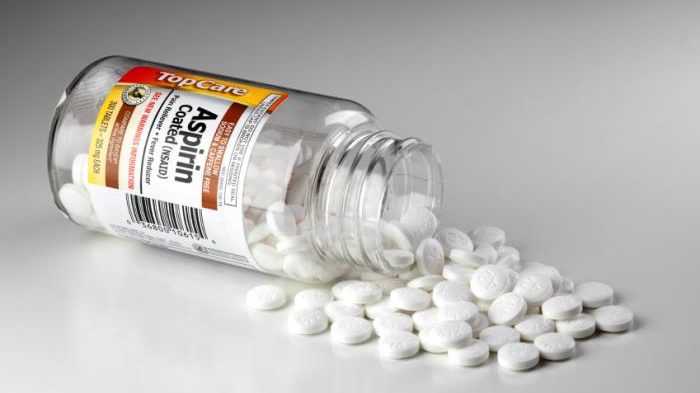Aspirin appears to boost the survival rate for older people with bladder and breast cancer.
“[Increased survival] was primarily strongest amongst those who took aspirin 3 or more times a week,” said Holli Loomans-Kropp, PhD, MPH, study author and NCI DCP Cancer Prevention Fellow at the National Cancer Institute. Her comments appear in Oncology Nursing News.
Researchers used data collected over an 8-year period from 139,896 participants in the Prostate, Lung, Colorectal, and Ovarian Cancer Screening Trial. They found taking aspirin had no effect on whether a person would develop cancer. Nor did it have any impact on survival rates for those with esophageal, gastric, pancreatic, or uterine cancer.
But for those patients 65 years and older with breast or bladder cancer, taking aspirin three or more times a week improved their chances of survival over those taking no aspirin or taking it less often.
In the study, published online last month in JAMA Network Open, the researchers, said, “Although aspirin use at least 3 times/week was associated with the strongest risk reduction, any aspirin use was associated with increased bladder and breast cancer survival. These results may indicate that for some cancer types, any aspirin use may be advantageous; however, greater benefit may be observed with increased frequency of use.”
The researchers note that many people – between 25% and 50% of adults – take aspirin regularly. “Long-term aspirin use has been associated with decreased risk of heart disease, stroke, cancer (particularly gastrointestinal cancers), and all-cause mortality,” the researchers write. “Recent research suggests that aspirin use may offer protection against the development of and mortality from other cancer types as well.”
Previous findings from the Prostate, Lung, Colorectal, and Ovarian Cancer Screening Trial showed an association between aspirin use and significant reductions in the risk of colorectal polyps and colorectal cancer, but minimal or no association with prostate and ovarian incidence and survival.
“Although prior research has been most heavily concentrated in gastrointestinal cancers, our analysis extends the advantages associated with aspirin use to other cancers, such as bladder and breast cancers,” the researchers write. The latest study now suggests that aspirin use can improve longevity for older people with breast cancer and especially for bladder cancer.
“There is definitely evidence provided by our study, but it is not enough to suggest anything clinical, as it was a secondary analysis,” Loomans-Kropp told Oncology Nursing News. “Other randomized clinical trials are required to be able to say anything more definitively.”
[bdp_post_carousel]


